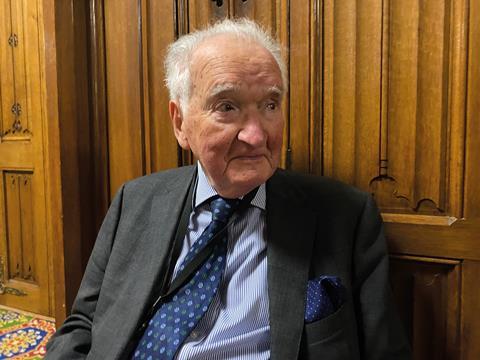Perhaps the most striking thing about the House of Lords constitution committee’s new report on the roles of the lord chancellor and the law officers is that the committee never got to speak to them during its 11-month inquiry. By ‘them’, I mean Dominic Raab – lord chancellor for all but seven weeks of that period – and Suella Braverman, attorney general until 6 September.

Raab had been scheduled to give oral evidence on three occasions but each session was cancelled – ‘for understandable reasons’, the all-party committee said. Braverman’s appearance took so long to arrange that it was overtaken by events and then cancelled when she became home secretary.
Why did ‘accountability and scrutiny of ministers’, as the committee calls it, have such a low priority? Surely Raab and Braverman would have wanted to defend the government’s commitment to the rule of law?
That is certainly what they would have been asked about. ‘The responsibility of the government to honour the state’s international obligations’, in the committee’s view, ‘requires it to refrain from inviting parliament to legislate knowingly contrary to the UK’s international obligations.’ But that is just what ministers have been trying to do.
‘The United Kingdom Internal Market Bill was significant not only because it would have allowed the government to breach international law but because the government acknowledged the fact,’ peers said. ‘The current Northern Ireland Protocol Bill has similar aims’ and the government had ‘failed to produce a credible legal justification’ for breaking international law.
Whose responsibility is it to warn ministers off? The lord chancellor is not meant to give colleagues legal advice. But Lord Mackay of Clashfern (pictured), who held the post from 1987 to 1997, saw it as his job to raise legal issues in cabinet and encourage ministers to take advice from a law officer.

The lord chancellor should also defend the rule of law and educate ministerial colleagues about its importance, the committee said. Recalling the occasion in 2016 when a Daily Mail headline described three senior judges as ‘enemies of the people’, peers insisted that ‘defending the judiciary against unfair, personal or threatening abuse is a core part of the lord chancellor’s role’.
That incident, and a tardy response by the then lord chancellor Liz Truss, ‘at the very least caused alarm within the judiciary and damaged trust’. It showed ‘the importance of a lord chancellor having sufficient authority within the government to perform their role’.
How sure must the attorney be that ministerial proposals are within the law? Current guidance tells government lawyers: ‘unless there is no respectable legal argument that can be put to the court in support or defence of the action we wish to take, you can advise that there is a sufficient legal basis to proceed, even if high risk’.
Peers were unimpressed. ‘The existence of a “respectable legal argument”… could sometimes represent a very low threshold for authorising legally uncertain action,’ they said. ‘The concept may provide a helpful framework for the provision of advice by government lawyers but a decision by ministers to act must not be based solely on a calculation of legal inconvenience. An alternative framework for assessing legal risk might be to do so in terms of a “necessary degree of confidence”.’
Noting that the attorney expected the absence of a respectable legal argument to be ‘rare’ or ‘exceptional’, the committee wondered whether she was setting the threshold so low that an argument could almost always be found. Alternatively, perhaps the government was comfortable with advice that was legally dubious.
But that carried risks. ‘In the case of decisions to authorise armed conflict,’ said the report, ‘greater certainty is required. The existence of a merely “respectable” argument in this context is a fig-leaf, and risks undermining the trust of the public and the military.’
More generally, though, the committee pulls its punches. Does the lord chancellor need to be a lawyer or someone with political clout? Very nice, but we won’t insist. Should the lord chancellor serve for more than the seven weeks that Brandon Lewis was given? That would be nice too, but it is up to the prime minister. Might the Ministry of Justice give up its responsibility for prisons? Certainly worth considering. Judicial appointments? Best to tread carefully.
Peers were a little more blunt about the attorney general and her colleagues. They saw great value in having lawyers who understood the political context and who could be held to account by parliament. But law officers should ‘refrain from making public statements which could damage public perception of their impartiality’.
You bet. The current attorney general, Victoria Prentis, understands the benefits of keeping a low profile. But it will take a while before we forget Braverman’s efforts to politicise her role – even if the constitution committee was the one platform she failed to seize.
joshua@rozenberg.net


















![David Lester (senior partner at Blythe Liggins), Darryl Barnes, Jagdeep Sandher (head of dispute resolution at Blythe Liggins)[4]](https://d1d8vslyhr7rdg.cloudfront.net/Pictures/274x183/4/2/8/116428_davidlesterseniorpartneratblytheligginsdarrylbarnesjagdeepsandherheadofdisputeresolutionatblytheliggins4_981603_crop.jpg)








No comments yet